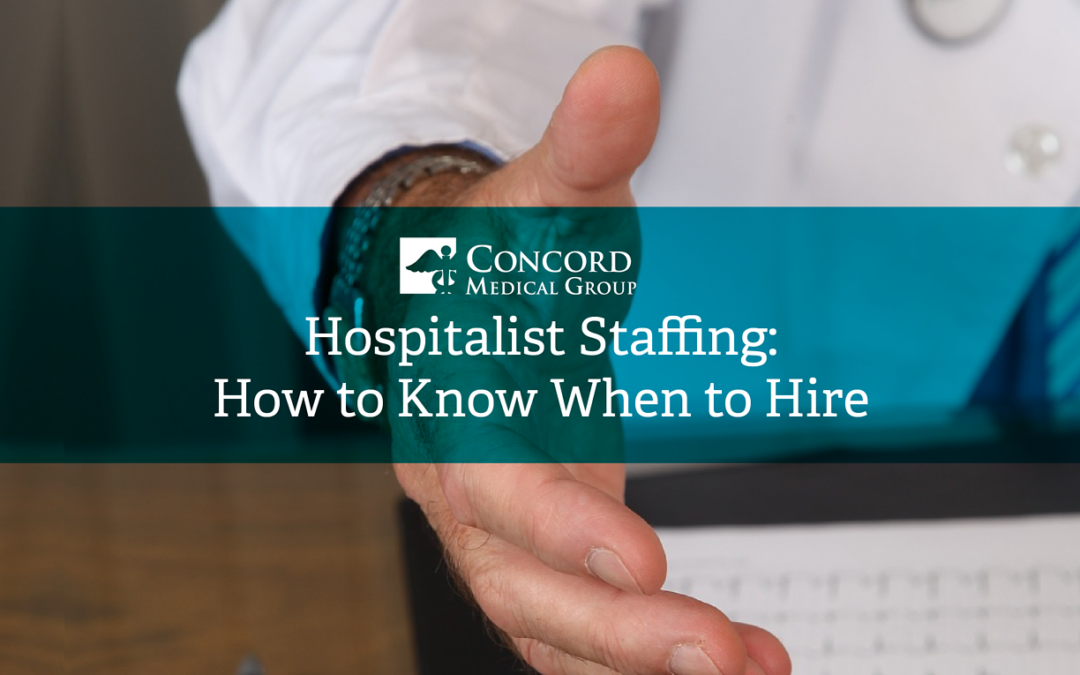Determining appropriate staffing levels is a huge challenge for those in charge of hospital medical programs. The truth is, there’s no right answer and the correct solution depends on the individual needs of each facility.
Knowing when to hire hospitalists for your facility should take into account a variety of factors. But determining the proper staffing level can have a positive effect on your hospital, as well as reducing issues such as physician burnout (and lowered physician performance).
Hospitalist Staffing
Hospitalists are physicians who work on the staff of a hospital, and the hiring of hospitalists has expanded rapidly over the past several years. Studies have shown that hospitalists can not only help improve patient satisfaction and reduce the length of stay, but also bring financial value to the hospital.
While hospitalists were perhaps undervalued in the past, that’s clearly no longer the case. And it’s also clear that they improve the state of patient care in general.
The question is, how to know when to hire?
Here’s a look at some factors to consider:
*Demand
Determining how many and what types of patients that will be seen in a given year drives demand. Also, how many tasks must your hospital perform to treat patients?
Demand also includes inpatient demand. In this case, there are also many factors to consider, including:
- Is the local community growing? Is it aging? Will more seniors require inpatient services in the near future?
- Take a close look at the local healthcare landscape. Is a hospital or other healthcare facility expected to close, resulting in a greater inpatient demand? Are insurance-related factors, such as those concerning Medicaid, reducing the number of covered patients while increasing the demand of uninsured patients? Analyzing inpatient demand also means examining health plans that are increasing or decreasing in size.
- Does your hospital expect to assume new responsibilities and programs in the coming year?
- The unique goals and characteristics of your hospital. They play an important role in determining staff size and needs.
- Patient satisfaction.
- Expense. Hospitalists are generally less expensive for hospitals than primary care physicians.
*Advantages of Hospitalists
The role of hospitalists is crucial to a hospital’s overall performance in a lot of ways, not the least of which is improving patient outcomes while reducing a patient’s length of stay. Moreover, they have a better understanding of hospital policies and protocols, which results in more efficient care and more attentive caregiving.
Hospitalists also help ensure that patient care is more readily available than it is with physicians who travel to see patients while also maintaining a private practice.
At Concord Medical Group, we have an extensive network of hospitalists who are looking for new opportunities.
Let us help you find the right healthcare provider that best suits you needs.
More Posts
Empowering the Rural ED: Unlock Excellence in Your Emergency Department
Managing a rural ED is a complex challenge that requires strategy, innovation, and a relentless focus on both people and outcomes. For hospital executives and clinical leaders, success hinges on the ability to balance high-quality care, operational efficiency, and staff satisfaction. Here are some essential strategies to help you unlock excellence in your ED.
Concord Announces Dr. John Jones as Chief Medical Officer of Emergency Medicine
Concord Medical Group is extremely excited to announce that John Jones, MD has accepted the role of Chief Medical Officer of Emergency Medicine.
Creative Staffing Models for Rural Emergency Departments
Staffing an emergency department with the right providers is essential to deliver high quality care and keep costs under control. We have found that creative and custom staffing models are essential to driving care quality and boosting financial health in rural, low-volume emergency departments.






